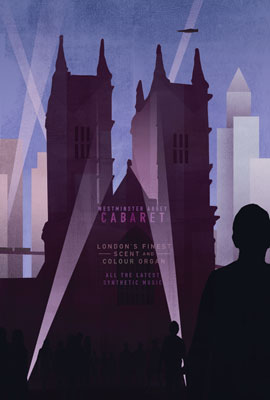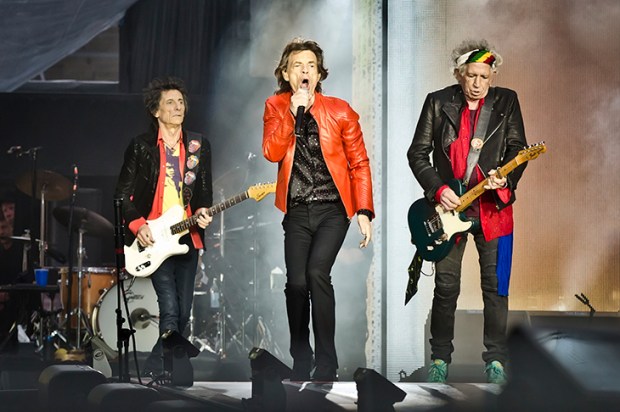The sexy thing this summer, as the TV ads tell us, is the e-book. Forget those old 1,000-page blockbusters, two of which would put you over Mr Ryan’s weight limit. Sand, sun, surf — and Kindle. The traditional ‘beach book’ is as obsolete as the Victorian bathing machine.
The printed codex has had a long run — it is half a millennium since William Caxton set up his stall around St Paul’s. Few inventions have lasted as long, or done as much good for humanity. But a tipping point has been reached for the ink, paper and board product. More precisely, it will be tipped into the waste-bin of history. Goodbye Gutenberg.
I love mooching round the shelves of the London Library, which proudly refuses to ‘deaccession’ any book it has acquired over the last 150 years. I have run up a quite sizeable bill in canine damage with them since my schnauzer insists on chewing volumes I’ve borrowed (always an embarrassing moment at the counter — ‘the dog ate my book’). Like me she’s particularly fond of Victorian fiction. Why? Because thousands of human hands (and, one fears, the occasional bespittled finger) have touched them and left their olfactory residue. Coat my iPad an inch thick with foie gras and Frieda wouldn’t be interested in the machine underneath. I feel much the same when, as sometimes it’s too inconvenient not to, I use Gutenberg.org, with its quarter of a million free and downloadable ‘texts’. It doesn’t, as the song says, have the same thrill as a book whose pages Virginia Woolf herself may have fingered.
Looked at objectively, e-books are suffering a bad case of techno-embarrassment. They do everything they can to look, on the screen, reassuringly like what they are in fact ousting from our lives. We’re in the ‘horseless carriage’ stage — as when, in order to make sense of the automobile, it was pictured as the old fashioned stage-coach less the horses. It wasn’t. Nor is the current e-book the old book with some e-bells and e-whistles. This ‘rear-mirrorism’,as Marshall McLuhan called it, is an attempt to comfort ourselves by creating false, nostalgic continuities.
The e-book won’t stay as it now is for long, certainly not for 500 years. It will soon incorporate sound tracks on its progress to total virtual experience (think Aldous Huxley’s ‘feelies’). So will the smelly old book go into oblivion, as anachronistic as coaches-and-six galloping up the fast lane of the M1? It could do. But if it’s to survive it’s pointless for the printed codex to compete with ever cheaper, nastier, read-and-toss products. It has to reverse (this is getting like a motoring column) and do what it does best.
Only one commercial publisher seems to have got that message. The Folio Society (it’s a publisher, by the way, not a crusty bibliophiles’ club) dedicates itself to the ‘real’ book. It sweeps up more annual prizes than Manchester United. Its 80 or so volumes a year feature end papers, cases, high-quality wove paper and carefully chosen type. Every book is the result of scores of individual production choices.
The aim of the Society over the 60 years of its existence has been to create not books but a library. It does a few new titles, but mainly reprints of books which deserve to last. And which deserve handsome treatment and the illumination brought by a first-rate illustrator.
The Folio Society ran a competition among young illustrators for the illustration of one of its lead titles for 2013, Aldous Huxley’s Brave New World — that 1932 dystopian forecast of what AD 2495 would look like. In the novel it’s AF 632, ‘our Lord’ having been replaced by Sigmund Freud (who is credited with pioneering the abolition of the nuclear family with all its nasty ‘complexes’) and Henry Ford — with his assembly-line innovation (not just for automobiles, but for babies in ‘hatcheries’).
The winner (it was contentious, there were hundreds of submissions) was Finn Dean, gifted, rising fast, in his early thirties. Dean chose, among his eight illustrations, one of my favourite satirical episodes in the novel, Westminster Abbey converted into a ‘cabaret’ (it was inspired by Huxley’s recent, wholly disgusted, trip to Los Angeles):
Jazz it up, jazz it up. Keep moving. Step on the gas. Say it with dancing. The Charleston, the Baptists. Radios and Revivals. Uplift and Gilda Grey. The pipe organ, the nigger with the saxophone, the Giant Marimbaphone. Hymns and the movies and Irving Berlin. Petting Parties and the First Free United Episcopal Methodist Church. Jazz it up!
I fancy the Abbey’s current £18 entrance fee would have inspired a little satirical effusion on the camel’s gate theme (‘abandon hope all ye that do not have the dosh’) by the author of Brave New World.
At the core of the e-book versus ‘real book’ relationship is how we read. I consume a lot of e-literature. I select the largest font, thumb-turn the pages like a pinball wizard, bookmarking about 10 percent of them which I judge to contain the marrow of the text. I return to them on a second run through. It’s fast food for the mind. I read ‘real’ books very differently. More slowly and thoughtfully. I like myself much more when I’m so doing.
Will the real book last? My hunch is that if it trusts itself, it may even make it to the millennium.
Got something to add? Join the discussion and comment below.
Get 10 issues for just $10
Subscribe to The Spectator Australia today for the next 10 magazine issues, plus full online access, for just $10.
John Sutherland was a judge of the Folio Society book-jacket competition.
You might disagree with half of it, but you’ll enjoy reading all of it. Try your first month for free, then just $2 a week for the remainder of your first year.











Comments
Don't miss out
Join the conversation with other Spectator Australia readers. Subscribe to leave a comment.
SUBSCRIBEAlready a subscriber? Log in